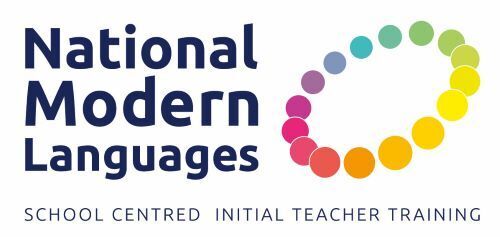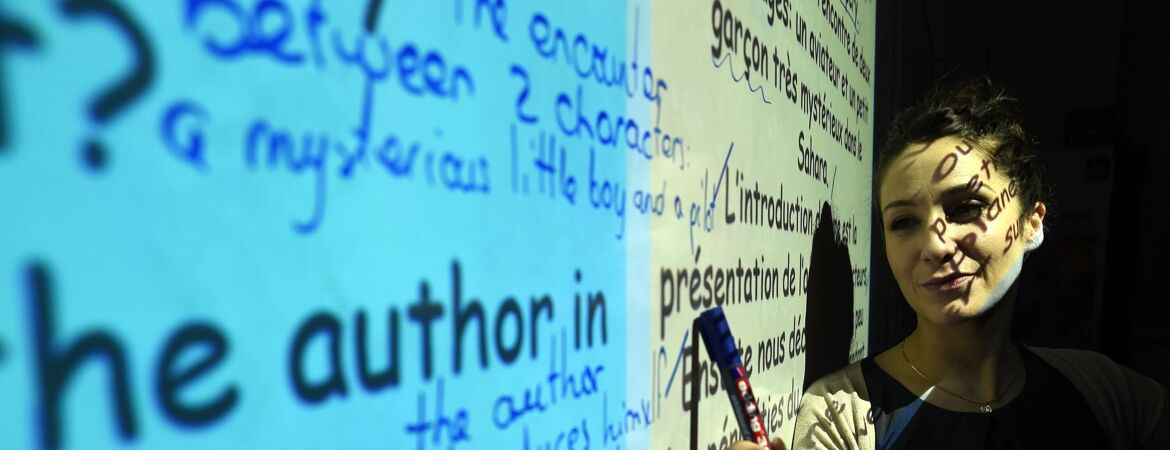Modern Languages
(Students elect a preference for French/ Spanish when they arrive at Trinity)
Through studying modern foreign languages at Trinity all students will be able to understand and respond both orally and in writing to a variety of authentic and adapted spoken and written material. In both French and Spanish students will be capable of expressing point of views, give specific information and respond to contextual situations with increasing accuracy and fluency. Students develop a sound knowledge and understanding of core grammar enabling them to discuss and narrate past, present and future events related to their daily life and wider issues as well as adapting their speech to the contextual situation.
Through studying this broad and balanced language curriculum all students will have a solid foundation for further studies as well as being able to effectively communicate in the target language of either French or Spanish if they choose not to pursue further studies. All students will have an understanding of key cultural and historical aspects that shape French and Spanish -speaking countries as well as having been exposed to French and Spanish speaking literature. In this way the curriculum entitles the students to deepen their understanding of the world.
By the end of year 9, students have learnt how to effectively communicate in contextual situations and refer to past, present and future events giving and justifying points of views. Students will be able to understand and respond to a wide range of spoken and written materials. They will be able to recall cultural and historical events in French and Spanish speaking countries. The students will express their ideas with increasing accuracy and have a foundation understanding of grammar structures. The students will have a solid Foundation to meet the GCSE requirements or pick up the language later on if they choose to.
By the end of year 11 the students will have significantly developed their perception skills through listening and reading practice. The student will be able to use in speaking and writing a wider range of vocabulary and grammatical structures, express their ideas or narrate event with greater fluency and accuracy. Specific exam skills development will be embedded in the teaching to efficiently prepare the students for each area of their examination (Listening/ Reading/ Speaking/ Writing) using specific exam materials from the examination board.
A Level French offers the opportunity to students to develop even further their linguistic abilities by mastering grammatical structures from GSCE but also use very complex language and structures used in formal situation and literature. Moreover, the students will use the language as a mean to study and show their understanding of trends and issues in French-speaking society, of the artistic culture and of the political life in France and French-speaking society. Finally, the students will have the opportunity to study both a film and a novel.
SEND and Modern Foreign Languages at Trinity
At Trinity It is an expectation that all lessons and wider resourcing has effective provision for students with SEND so that they are able to make equal progress to their peers. SEND data is analysed and used to inform planning and interventions where necessary.
In languages all teachers consider the needs of SEND students in three ways.
Firstly, teachers consider a ‘seating check’ In languages this means seating plans being designed in such a way that the needs of individual students are catered for. This might include seating near the door for particular medical needs, away from windows or doors for students with ADHD.
Secondly the curriculum is designed and resources are checked to ensure they are SEND friendly. The languages curriculum is designed in such a way as to be “low access, high challenge” so that all students can make progress and feel successful. This is through the use of “hinge questions” for each learning episode that allow for a full range of responses, and for progress to be made within each. In lessons resources are designed to be as simple as they can be visually, use dyslexia-friendly fonts and backgrounds and dual-coding is deployed where appropriate.
Finally, the way language learning is implemented is at Trinity ensures all SEND students can make progress. This means framing the lessons around hinge questions that are referred to and that support, recognition and challenge are deployed by the teacher through their questioning and coaching on an individual basis. Cognitive overload is managed in a variety of ways. For instance sentence builders are used to develop confidence, and modelling on an “I do, we do, you do” basis, with regular feedback and low-stakes quizzing is used to aid component knowledge retention.

At Trinity, we support a range of teachers including those training to teach.
We partner with providers such as the National Modern Languages SCITT to welcome new teachers into the profession and develop their practice.
For more information the link to the NML website is https://www.nationalmodernlanguages.com/


